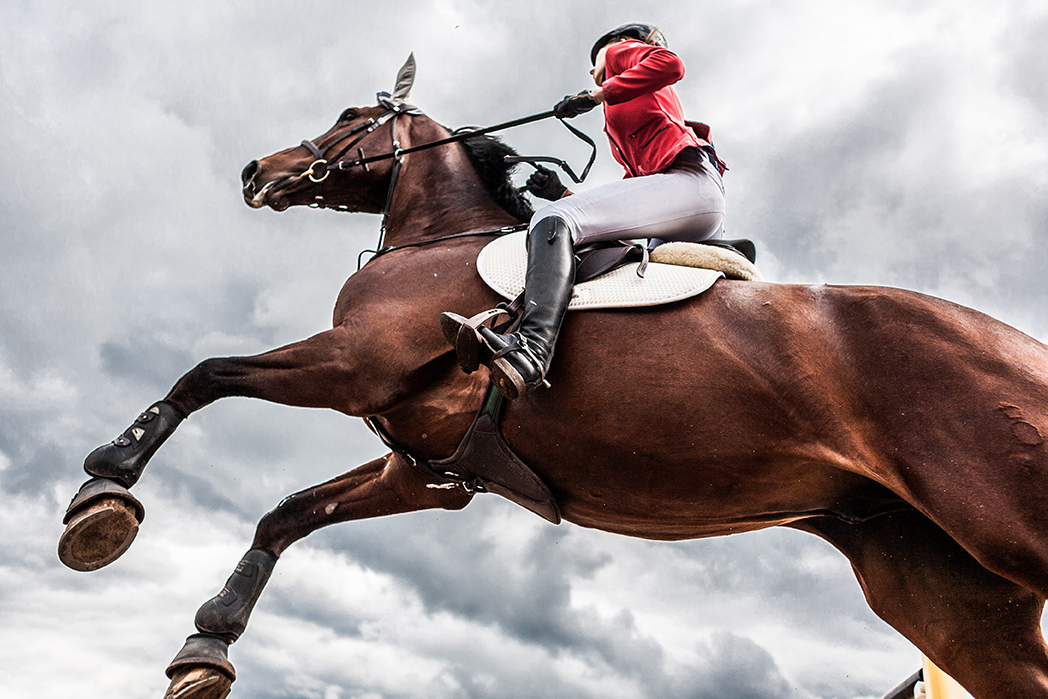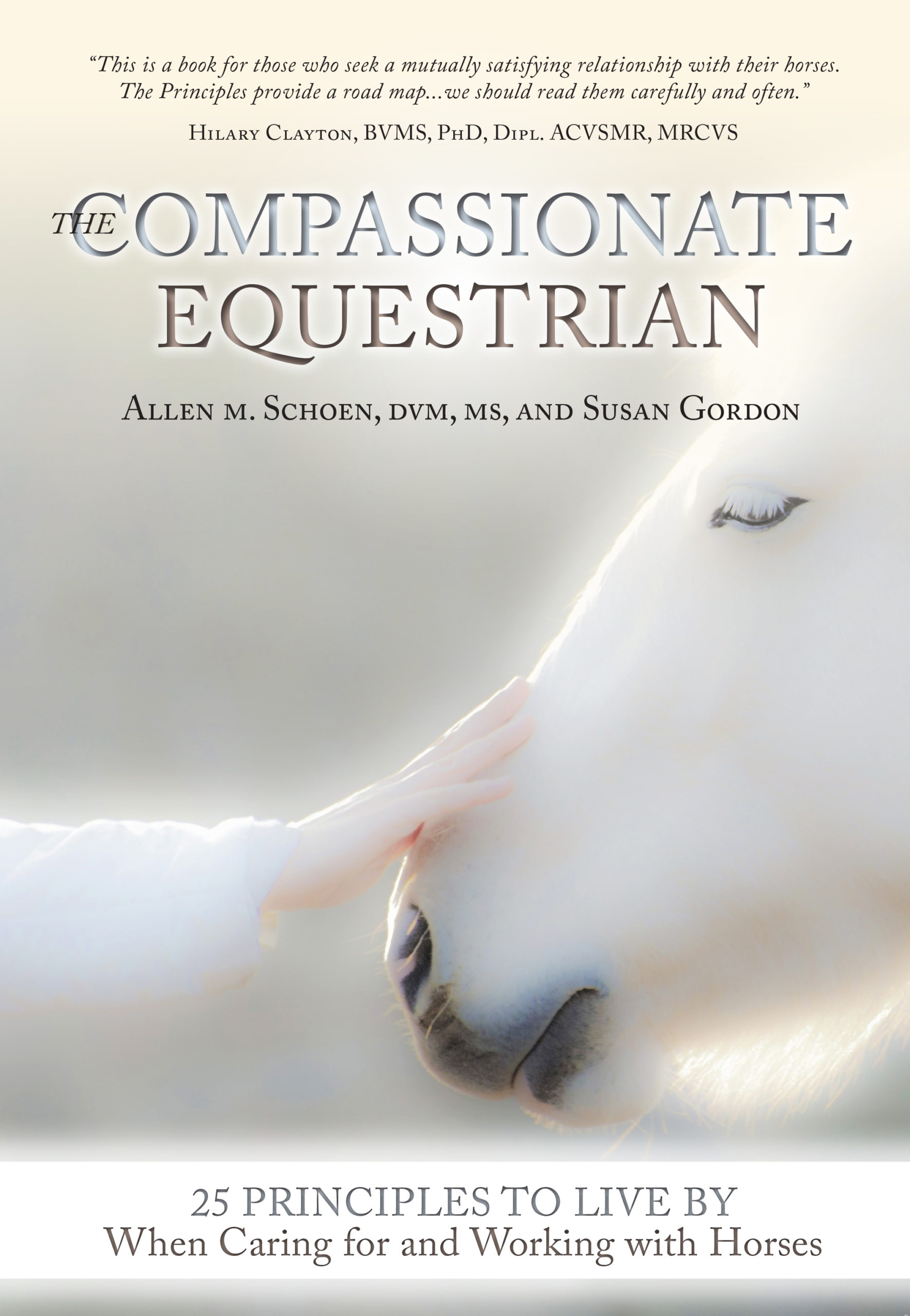In this excerpt from the book she wrote with veterinarian Dr. Allen Schoen, The Compassionate Equestrian, horsewoman Susan Gordon discusses what to keep in mind when working with the overly playful (aka “spooky”) horse.
Photo by Timur Abasov/Adobe Stock
We all love a happy horse, but sometimes his exuberance and need to “play” can be disconcerting. Our version of fun doesn’t necessarily correlate with that of the horse! “Play” can also mean “fresh” to some horse people, as it denotes a horse that has been stall-bound for a day, for example, and has a lot of extra energy.
Several barns I worked at had a “closed” policy on Mondays to give staff and horses a complete rest, but it also meant the ex-racehorses stayed indoors—I used to refer to Tuesdays as “Terrible Tuesdays” because some of the fitter Thoroughbreds were a bit wild after a day off!
Some horses—and this can be any breed—just have a playful personality, and this can make them either quite entertaining, or just frustrating, depending on how well they nick with the personalities of their riders. The playful horse is different from one that worries and spooks frequently out of anxiety. The latter can be even more challenging due to the reasons behind the spooking—which may include inherent fear, conditioning, or trauma.
How would you like your horse to feel about the training session you just shared? Always make time for additional moments of quiet and reestablishing a normal heart rate and breathing rhythm following a workout. That goes for both the rider and the horse. As human athletes, we do this when we include a recovery period between harder intervals. Not all sessions with a horse will end on the “best” note, but it is worth it to get to a point of calm regrouping before leaving the arena. The horse you leave the ring with is the horse that will come back into the arena the next day. The wisest riders finish a session with a relaxed horse.
The cool-down period of a workout is as essential as the warm-up for both mental and physical aspects of athletic conditioning. Allow enough time at the end of your ride for recovery processes to occur. This is also a good time to reflect and clarify in your mind what the most positive moments were and where you possibly could have made improvements, as well as identifying where you perhaps let aspects of your behavior and personality affect the ride.
The next time you enter the arena to work with your horse, what memories of the previous session will you take with you? What memories will he bring with him? Know yourself, and know your horse. Take the time to practice exercises in self-reflection that will identify the aspects of yourself that you may be projecting onto your horse. When we identify and overcome the sources of our own aberrant behaviors, we can help horses with theirs, and find a compassionate, humane pathway to partnership.
COMPASSIONATE SKILLS FOR RIDING “PLAYFUL” AND “SPOOKY” HORSES
- Patience. This is part of your exercise in self-reflection. If you are not able to treat a horse with patience, ask yourself, “Why?”
- Curiosity. Try to understand how the background training of the horse may have led to extreme behavior.
- Confidence. A strong, independent seat learned on safe horses will help a lot when difficult moments arise.
- Focus. The ability to concentrate for long periods of time is a benefit to a horse person. A horse knows exactly when you have taken your attention away from him. The sensitive ones will choose that moment to over-react or “play up.”
This excerpt from The Compassionate Equestrian by Dr. Allen Schoen and Susan Gordon is reprinted with permission from Trafalgar Square Books (www.horseandriderbooks.com).


